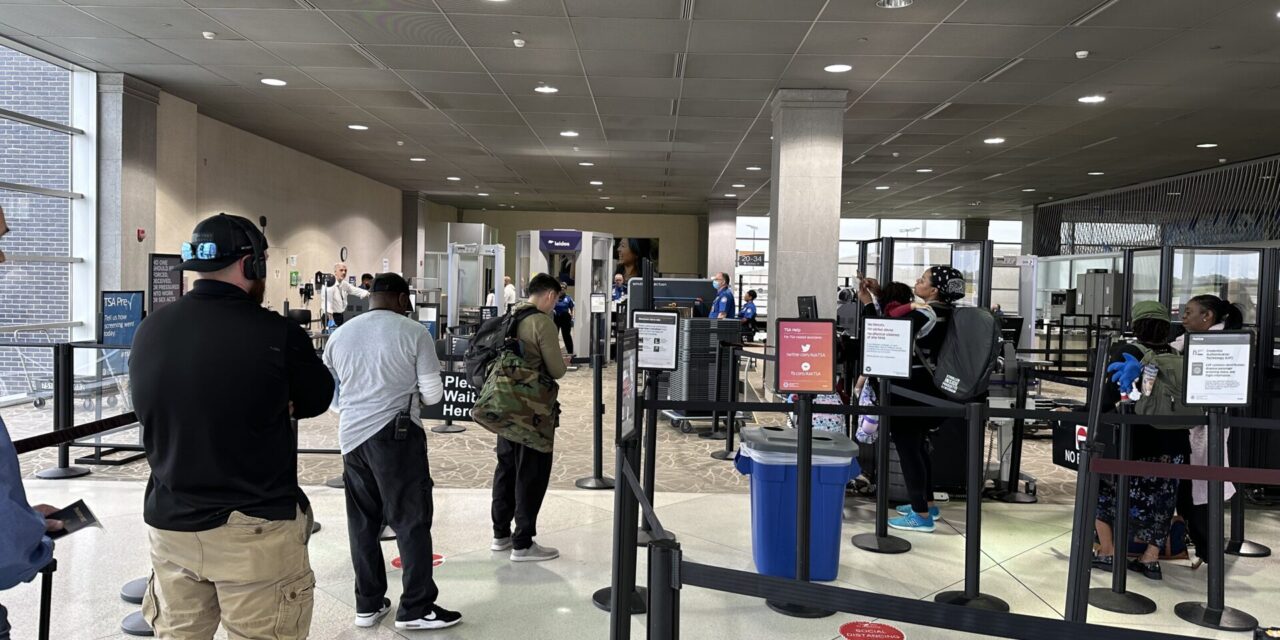If you’re flying out of Piedmont Triad International Airport (PTIA), well, your flight is getting a little safer thanks to some cutting-edge security screening machines that have been installed at Transportation Security Administration (TSA) checkpoints there.
A half dozen new computed tomography (CT) X-ray scanners were installed across two security checkpoints. That work, which has been ongoing for the past two months, is now complete and the machines on all the security lanes are up and running.
The new scanners are able to screen flyers’ carry-on luggage using a highly advanced algorithm that analyzes the 3-D image of the contents of the bag to determine more easily what’s inside.
According to a Wednesday, Aug. 30 press release announcing the security enhancement, TSA officers can now manipulate the 3-D X-ray image on the screen, which allows them a better view of the bag’s contents – ultimately reducing the number of bag checks that are required.
One big advantage for passengers is that, when a carry-on bag is screened through a CT scanner, they can leave everything in their bag, including electronics larger than a cell phone and food.
Some people flying out of PTI recently may already have noticed the pleasant change – even if they did still have to take off their shoes and belts.
TSA Federal Security Director for Eastern North Carolina Jennifer Gordon said that everyone benefits from the upgrade.
“The new CT technology in the checkpoints is a ‘win-win’ for TSA and passengers,” she said. “Passengers get to leave electronics and 3-1-1 compliant liquids in carry-on bags, and we get increased detection capability which leads to fewer physical bag searches.”
According to the press release, the opening of the X-ray tunnel on a CT unit is a little smaller than the opening on traditional X-ray machines, so the TSA is advising travelers not to force larger items into the tunnel. Instead, they can ask a TSA officer for help.
The new CT scanner system does require that every carry-on item be put in a bin for screening.


I was wondering what those huge phallic white tube things were. It didn’t help that they have Anal-something written on the side.
What an extraordinary choice of name for such a structure…
Not only is it not safer, anyone who has travelled through the airport lately knows it will take longer as TSA screeners do not know how to use the machines. This negates the one advantage out of flying from PTI. And we just give away more of our privacy.
I’ve been through there 3 times since being installed. SO SLOW!!!
Impress me by putting these at the border.